DISCOVER THE TANJONG PAGAR NEIGHBOURHOOD AND THE RAIL CORRIDOR ANEW WITH THE EVERYDAY MUSEUM’S NEW PUBLIC ART TRAILS
Singapore Art Museum’s public art initiative brings artistic interventions into everyday spaces with a series of newly commissioned artworks and programmes.
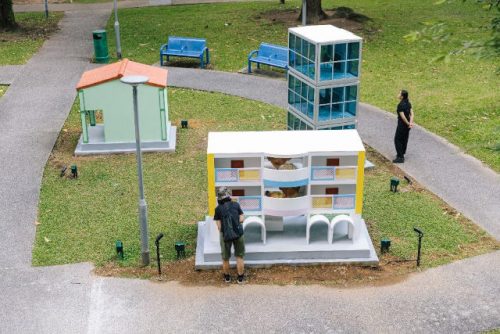 Divaagar, Installation view of Everfowl Estate (2023). Image courtesy of Singapore Art Museum
Divaagar, Installation view of Everfowl Estate (2023). Image courtesy of Singapore Art Museum
This month, Singapore Art Museum (SAM) announces two new public art trails, Port/raits of Tanjong Pagar: Encounters with Art in the Neighbourhood and Singapore Deviation: Wander with Art through the Rail Corridor, which will activate nine different locations around the historic Tanjong Pagar neighbourhood and the iconic Rail Corridor to bring art encounters into the everyday. Inviting perspectives from nine Singaporean and Singapore-based art practitioners, the two art trails consisting of newly commissioned public artworks are part of SAM’s long-term public art initiative, The Everyday Museum.
First launched in July 2022, The Everyday Museum presents contemporary art projects and programmes across Singapore in collaboration with art practitioners, partners and communities to weave art into the island’s urban landscape and inspire interest and curiosity in art. The Everyday Museum has since seen three commissions rolled out at Tanjong Pagar Distripark, including Ming Wong’s Wayang Spaceship and works by Michael Lee, Hazel Lim-Schlegel and Andreas Schlegel, as well as a line-up of public programmes that included performance activations, audio trails and pop-up installations. From April 2023, visitors can also catch a new artwork by Genevieve Chua, Prove You Are Human, on the façade of Block 39 Tanjong Pagar Distripark, which is inspired by CAPTCHA codes and presents a rhythmic resonance with the buzzing environment of Tanjong Pagar Distripark and its surrounding traffic.
Familiar spaces made anew with art installations
This year, The Everyday Museum will see works that explore ways of engaging with the community. From 29 April 2023, the public can look forward to two art trails that breathe new life into the Tanjong Pagar neighbourhood and Rail Corridor – inviting renewed experiences of seemingly familiar places and offering an opportunity to reconsider spatial and environmental constructions through art. Both art trails will be on view till 9 March 2025.
“The launch of the two new public art trails in the Tanjong Pagar neighbourhood and along the Rail Corridor is part of SAM’s commitment to expand the possibilities and potential of art in our society by infusing art in the everyday. These site-specific artworks in publicly accessible spaces present new ways for SAM to connect art and artists with the public. We want to engage communities where they live, work and play, so that people from all walks of life can experience art and discover new perspectives about these lived spaces. We hope that The Everyday Museum facilitates not only meaningful art encounters but also inspires reflections and conversations amongst our publics on the evolving relationships of a city constantly in flux, as we set the stage to transform Singapore into an open-air museum in the years to come,” says Eugene Tan, Director of SAM.
Port/raits of Tanjong Pagar: Encounters with Art in the Neighbourhood
📅 29 Apr 2023 to 9 Mar 2025
📍 Duxton Plain Park, Everton Park, Tanjong Pagar Plaza and Tanjong Pagar Distripark
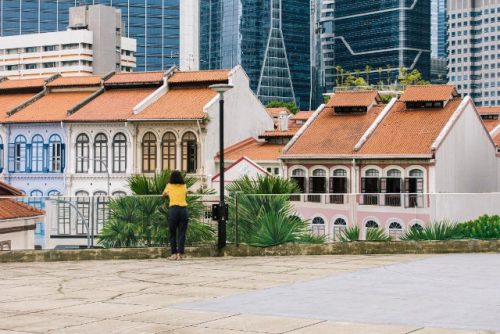 Isabella Teng, Installation view of Little Islands (2023). Image courtesy of Singapore Art Museum.
Isabella Teng, Installation view of Little Islands (2023). Image courtesy of Singapore Art Museum.
Beginning with SAM’s immediate neighbourhood, the first of the two public art trails will explore Tanjong Pagar district, an area that has seen dramatic transformation over the decades to become one of the largest seaports in the world. Featuring artistic responses by six contemporary practitioners, Port/raits of Tanjong Pagar explores the multifaceted histories, identities, development and economic aspirations of the Tanjong Pagar district. The site-specific installations delve into intersecting interests of urban planning, materiality, boundaries, the non-human, and kinship as observed around each site. Port/raits of Tanjong Pagar is made possible in venue partnerships with Mapletree Investment Pte Ltd, National Parks Board, and Tanjong Pagar Town Council.
As visitors embark on their journey along the trail, they can look forward to works that playfully draw from and interact directly with their respective sites. At Duxton Plain Park, Aki Hassan presents Grounding Points: Settled and Grounding Points: Settling In – two sculptures that mimic the forms of existing structures within the vicinity from the nearby Indian Rubber trees to the exercising tools found in outdoor park gyms. Inspired particularly by the ‘invasive-supportive’ parasitic, interdependent nature observed in the Indian Rubber tree, Grounding Points reflects on supportive exchange and mutuality between ecological bodies and their surrounding systems. Also sited at Duxton Plain Park is {still} life by design studio Space Objekt, an installation comprising mirrored surfaces that reflect images from different vantage points, inviting curiosity of one’s built environment. When the images are framed by viewers through the mirrors, they allude to the proliferation of the ‘selfie’ and the performative nature of daily life. The strategic placement of these mirrors encourages audiences to pay greater attention to their surroundings, where they may discover nuanced visual elements that may emerge as they engage with the work.
The trail also explores Tanjong Pagar’s ecological landscape and offers new means of encountering and connecting with nature and the non-human. Over at Everton Park, Divaagar’s Everfowl Estate examines placemaking through the evolution of housing developments from the unconventional lens of the estate’s free-roaming Junglefowls. The whimsical series of miniature avian-sized homes are modelled after various types of housing one can spot around Tanjong Pagar. Sited in one of Singapore’s oldest residential estates, Divaagar’s intervention invites viewers to reflect on conditions of living and the relationships we have with our non-human neighbours. In the later half of the year, there will be also a new commission by Zen Teh coming to the neighbourhood. The work, Rattan Eco Sprawl: Manifesting the Forest, will adopt the form of a liminal gateway, providing an intimate space for humans and other species to coexist and commune within its undulating, experimental form. Audiences are invited to enter the installation and be enveloped by the permeable, curved rattan structure, on and within which living plants also settle. The work is intended to be an extension of its surrounding natural landscape and will weather, intersect, and grow with it.
Responding to Tanjong Pagar’s history and its rapid evolution over the years, Isabella Teng’s Little Islands is an anamorphic series of murals at Tanjong Pagar Plaza that seeks to reclaim a sense of spaciousness and identity to the topography through visuals that displace time and space while drawing reference to historic island landscapes of Singapore. Engaging the community in the process of creation, one of the murals is co-created with the residents that presents lush views of an island. Grace Tan’s Sea of flags explores the ephemeral nature of cultural ethnoscapes and spatial boundaries that evolve through the decades. Cascading down the side of Block 39 at Tanjong Pagar Distripark is an array of fluttering flags, which are a consolidation of hundreds of material and colour swatches drawn from the landscape and architecture, natural and man-made materials that have defined the vicinity’s industries of the past. In this work, Tan examines the present and future of Tanjong Pagar and transformative impact on the material memories of the precinct.
Singapore Deviation: Wander with Art through the Rail Corridor
📅 29 Apr 2023 to 9 Mar 2025
📍 Kampung Bahru Bus Terminal and Wessex Estate
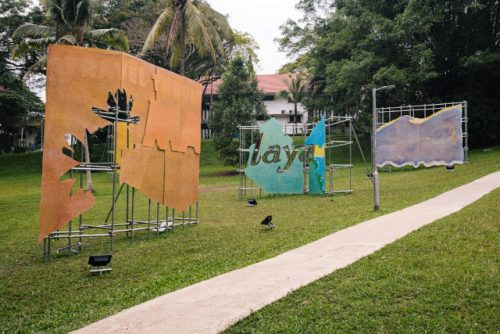 Hilmi Johandi, Stagecraft: Landscaped Grounds, 2023. Image courtesy of Singapore Art Museum
Hilmi Johandi, Stagecraft: Landscaped Grounds, 2023. Image courtesy of Singapore Art Museum
The series of new public art installations sited at Singapore’s iconic Rail Corridor features three artists who each respond to the Rail Corridor’s embodied histories. Titled after a revised alignment to the original Singapore-Kranji Railway in 1932, Singapore Deviation gestures to the Rail Corridor’s history as a colonial railway to explore the diverse and dynamic historical, social and ecological relationships that animate the site’s continued relevance to today’s communities as an urban and community leisure zone. With the artworks located at sites tangential to the Rail Corridor, the artworks serve as a catalyst for new encounters within spaces of leisure, as visitors are encouraged to ‘deviate’ from the trail and explore its surroundings. Singapore Deviation is made possible with the generous support of Sun Venture and in venue partnership with JTC, Land Transport Authority and SBS Transit.
Known for her critical observations of relationships between everyday rituals, history and memories, film-maker Tan Pin Pin presents walk walk (Singapore Deviation version), a work comprising a video and text installations exploring the gesture of walking – a commonplace activity along the Rail Corridor. The work is situated at Kampong Bahru Bus Terminal along Spooner Road, serving as a terminating point for bus routes in the city since 2018. With this location also marking the start of the Rail Corridor at the southern tip, walk walk (Singapore Deviation version) dives into the seemingly mundane act of walking in Singapore, where it is carefully shaped by public agencies and private developers, while simultaneously highlighting the act as an expression of the freedom to move.
Staged along an open path at Wessex Estate is a series of billboard-sized prints by Hilmi Johandi. Wessex is a precinct located within one-north, a vibrant research hub designed with a work-live-play-learn environment for innovative minds to congregate, collaborate, and create. Titled Stagecraft: Landscaped Grounds, the work is constructed from fragments and collages of early 20th century travel advertisements of the Federated Malay States Railways (1901–1948). In doing so, Johandi taps into the collective memory of the Rail Corridor, connecting the historical representations of sophisticated living with the site’s adaptation to a recreation space today. Like set pieces in a theatre, the billboard printouts stage an immersive scene that is distant but also strangely familiar. Also at Wessex Estate is Sookoon Ang’s Moonlight, a sculptural installation that explores the liminal space between the constructed world and unkempt wilderness. As visitors encounter the work, its bronze-cast form appears as a mirage, and invites us into the territory of the sublime and timeless, where Ang makes use of the site’s rich and complex ecological backdrop to blur the boundaries between physical phenomena and metaphysical projections.
Bringing communities together through a series of launch programmes
To celebrate the launch of the new public artworks, SAM will be presenting a series of public programmes from 29 to 30 April, where guided art trails, artist talks, live music performances, an outdoor film screening and other activities await. Nature walks will also be held over two weekends to offer different entry points to the art trails.
Ong Puay Khim, Deputy Director of Collections and Public Art at SAM, adds, “The two new art trails embody The Everyday Museum’s curatorially-driven approach, where great care is placed in our research of the histories and communities of the various sites and in working collaboratively with artists of varied practice to rediscover their significance to life today. As a long-term initiative, the trails demonstrate our commitment to put relationships at the centre of our work, where artists are supported with new platforms for experimentation and the public is encouraged to partake in active dialogue and collaboration. Through exploring lived spaces as spaces of culture for and of our communities, we hope to bring contemporary art closer to all.”
Over the opening weekend, visitors can interact with the artists and residents to celebrate art and culture in everyday spaces. As part of the opening festivities, SAM has also worked with several F&B partners in the neighbourhood to provide exclusive discounts and special menus.
Port/raits of Tanjong Pagar and Singapore Deviation are on view from 29 April 2023 to 9 March 2025. Admission is free for all artworks under The Everyday Museum. More information can be found at here as well as on The Everyday Museum’s new dedicated social channels on Facebook and Instagram.
It’s the weekend and are you looking for things / activities to do? Check out our weekly roundup of Things To Do This Weekend In Singapore.
For other upcoming events, visit Events in Singapore.
* * * * *
Like what you see here? Get parenting tips and stories straight to your inbox! Join our mailing list here.
Want to be heard 👂 and seen 👀 by over 100,000 parents in Singapore? We can help! Leave your contact here and we’ll be in touch.















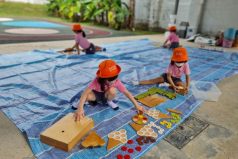






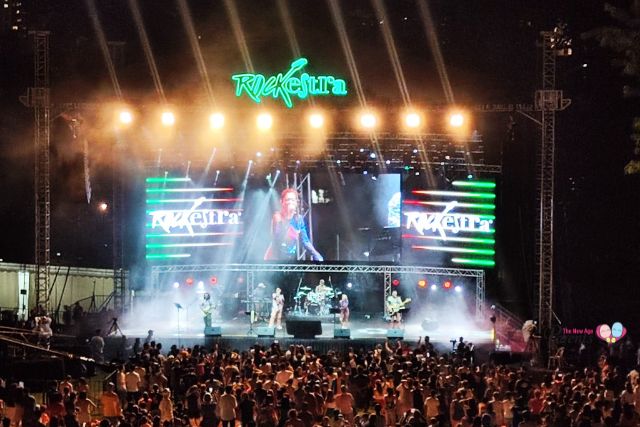

















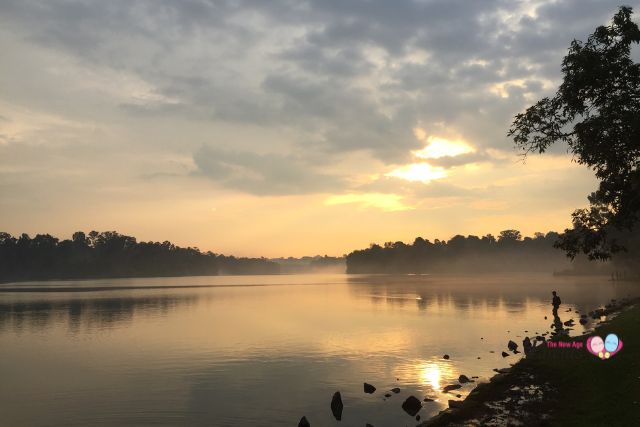
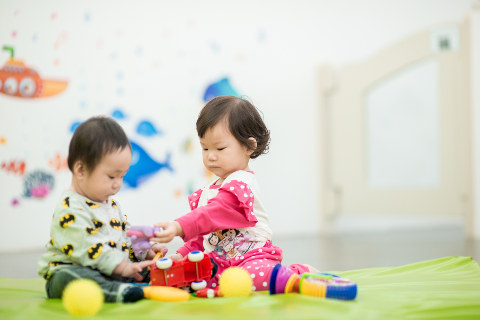







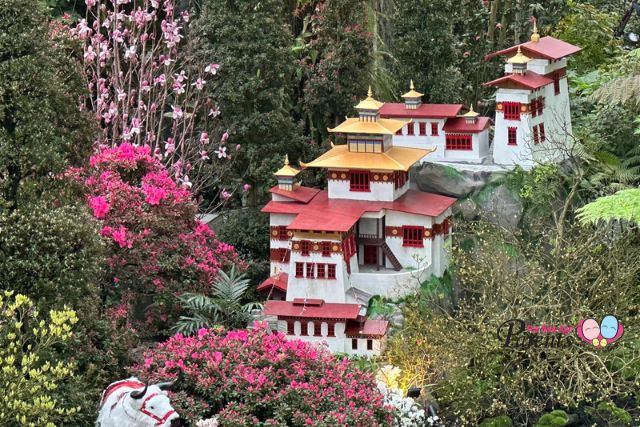
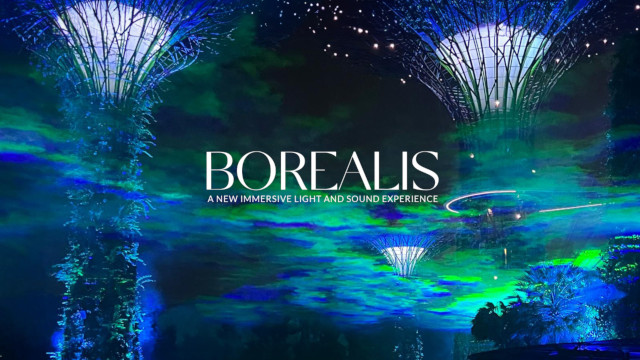

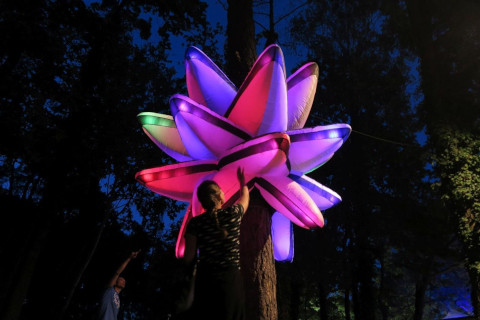






Leave a Comment: